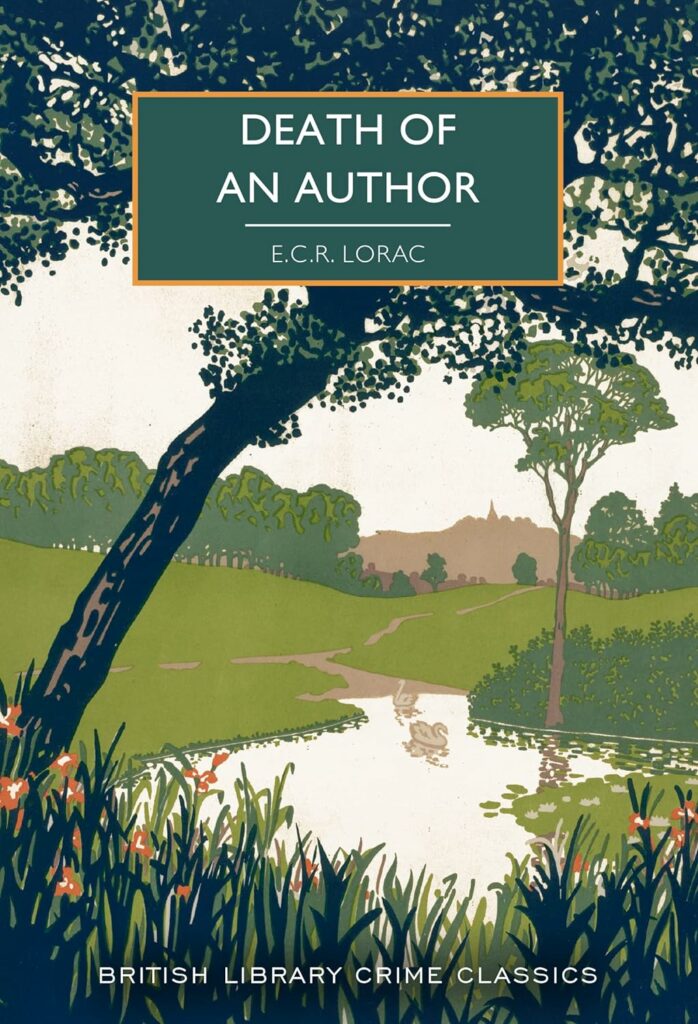Of the many rediscovered mystery classics, those written by E.C.R. Lorac are quickly becoming favorites. Lorac is the pen name of Edith Caroline Rivett who wrote dozens of novels from the 1930s – 1950s. She used a deliberately non-specific name so readers and critics would not know if the writer was a man or a woman.
Death of an Author pulls from her inside publishing knowledge to set up this snappy mystery novel. In it, a popular author Vivian Lestrange is an extreme recluse. Almost no one has seen him, save a couple of publishers. He refuses invitations to ceremonies and requests to interviews so it was a surprise when Lestrange accepts an invitation from a man named Michael Ashe to dinner — and she is a woman. She holds her own at the dinner and posits that no one can really tell if something is written by a man or a woman. This philosophical argument will be a theme throughout.
[The publisher] felt a few qualms at one period, as though he has been playing with forces which he was unable to control. Ashe was no Puritan, and Vivian Lestrange was provocative enough to challenge the devil in him. Yet [the publisher] took comfort from the very coolness of the young woman. Here was no inexperienced girl to lose her head over a dominating man; remembering the phrase she has used during their first meeting, [the publisher] chuckled to himself. “Ashe has met his Waterloo. It’ll be missing to see how he takes it.” ~ Pg. 21-2
Things get more complicated when the woman from the dinner shows up at the police station to report the disappearance of her boss — the real Vivian Lestrange.
The mystery is unravelled by two intelligent members of Scotland Yard, though their methods couldn’t be more different. Strange to say, but some of the most enjoyable passages are dialogue between the detectives Warner and Bond as they spitball ideas and talk through their theories. It’s laid bare for the reader to trace and makes it engaging as well as ‘fair play.’
Warner spread out his hands in a gesture of uncertainty. ‘Who knows?’ he replied. ‘Maybe both theories are utterly wide of the mark. I’m not yet convinced that anything which either of us has suggested this evening is likely to be the truth, but when one’s absolutely at sea, any mark is better to steer by than none. I’m merely indicating lines of research. ~Pg. 123
This is a great starting point for readers who are interested in the Golden Age of Crime or exploring Lorac’s writing. The mystery and solution is straightforward (whereas some of the era are nearly impenetrable), making it a classic entry of the genre.
My thanks to Sourcebooks/Poisoned Pen Press for the review copy.
Publisher: Poisoned Pen Press (April 30, 2024)
Series: British Library Crime Classics
Language: English
Paperback: 246 pages
ISBN: 9781464216268

